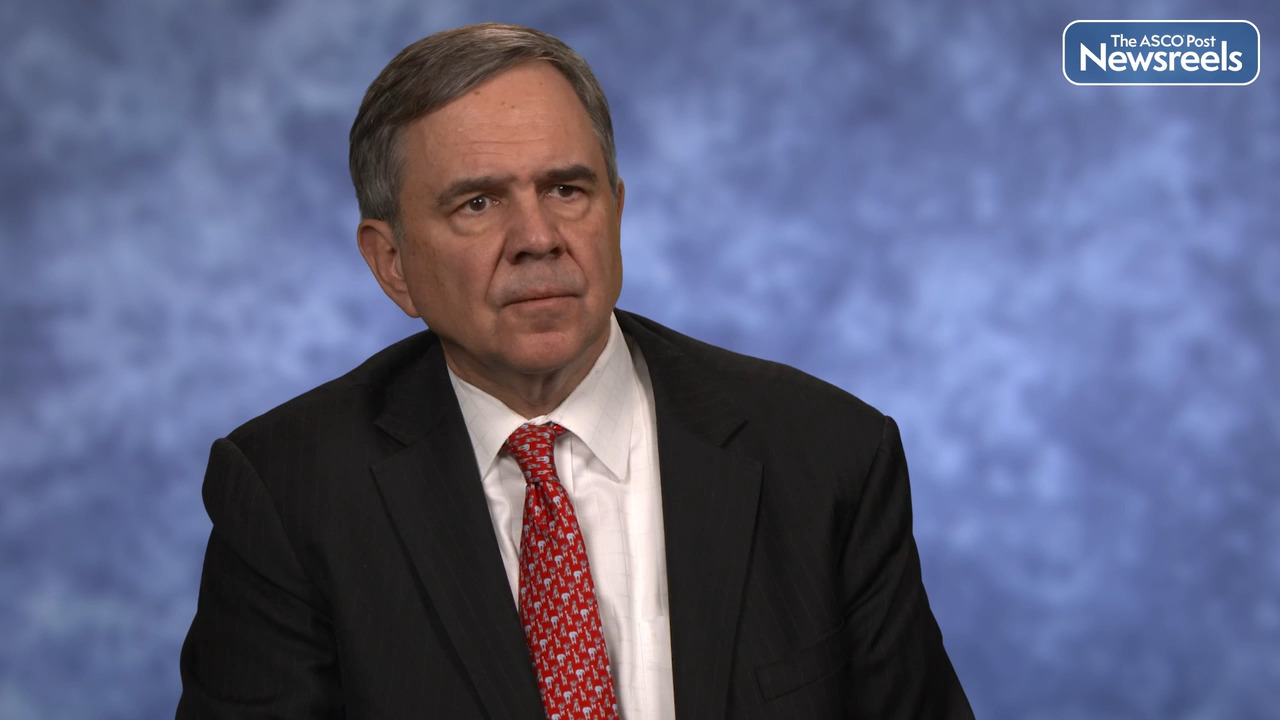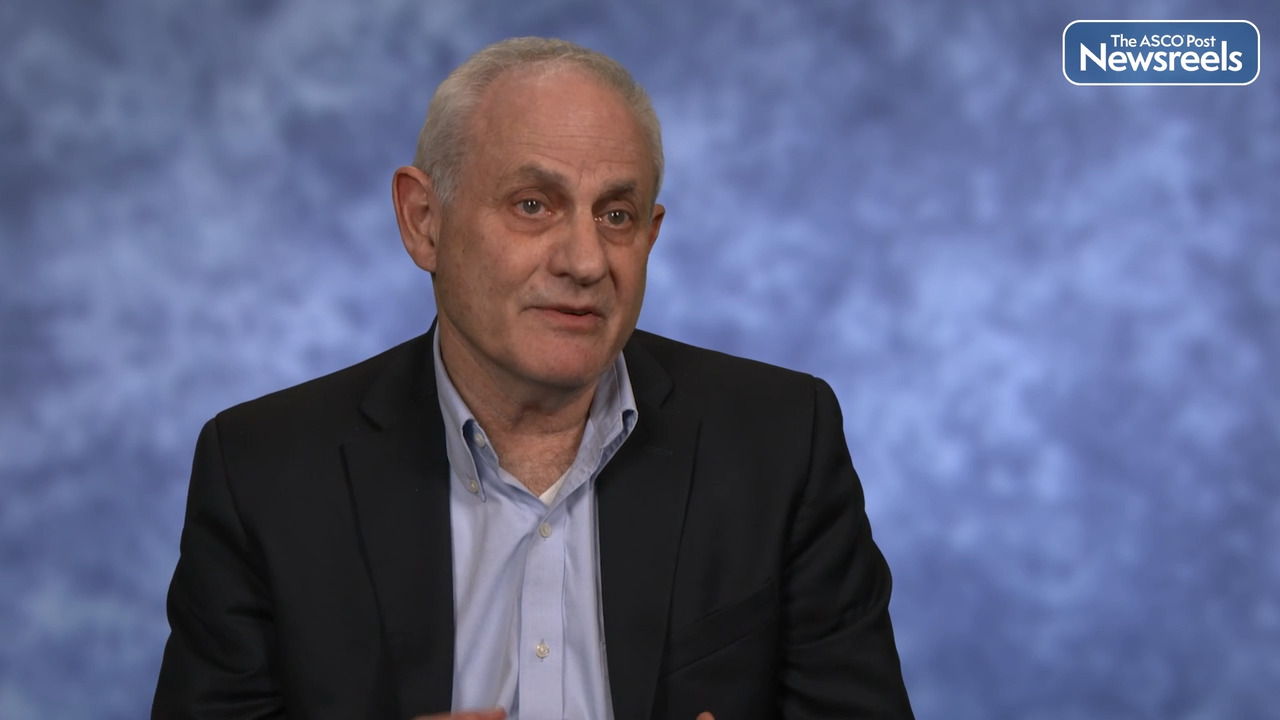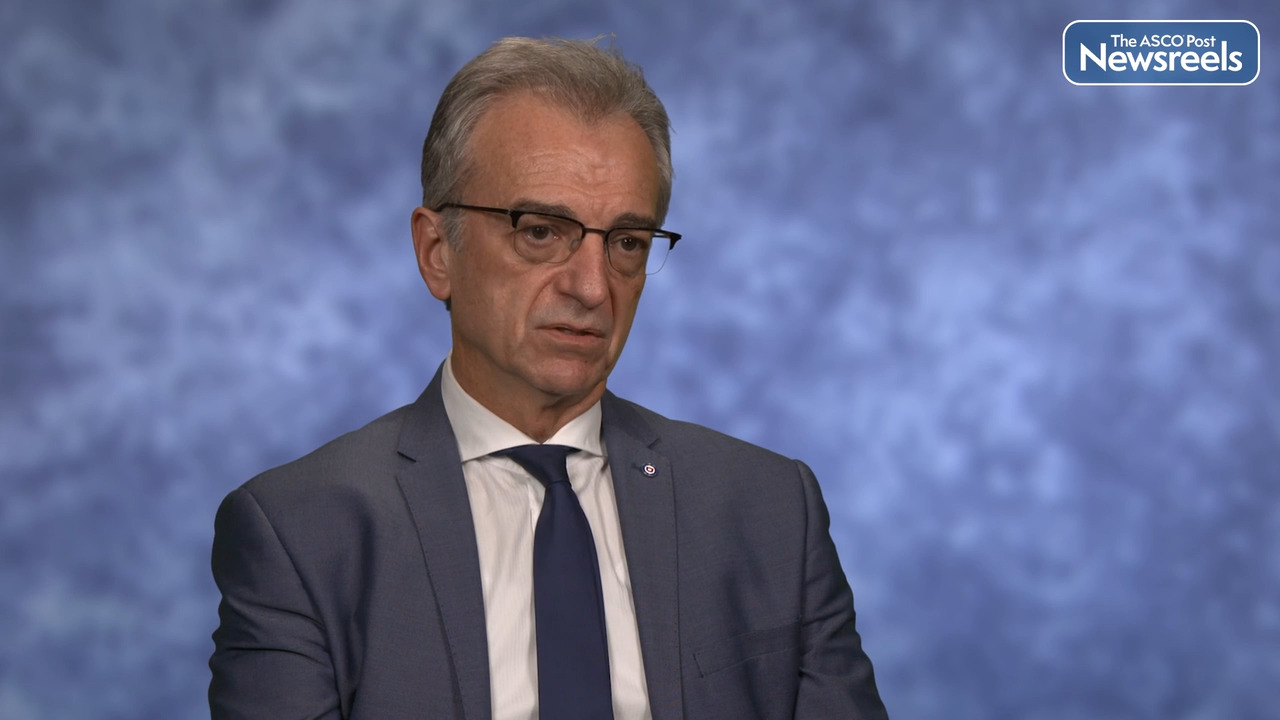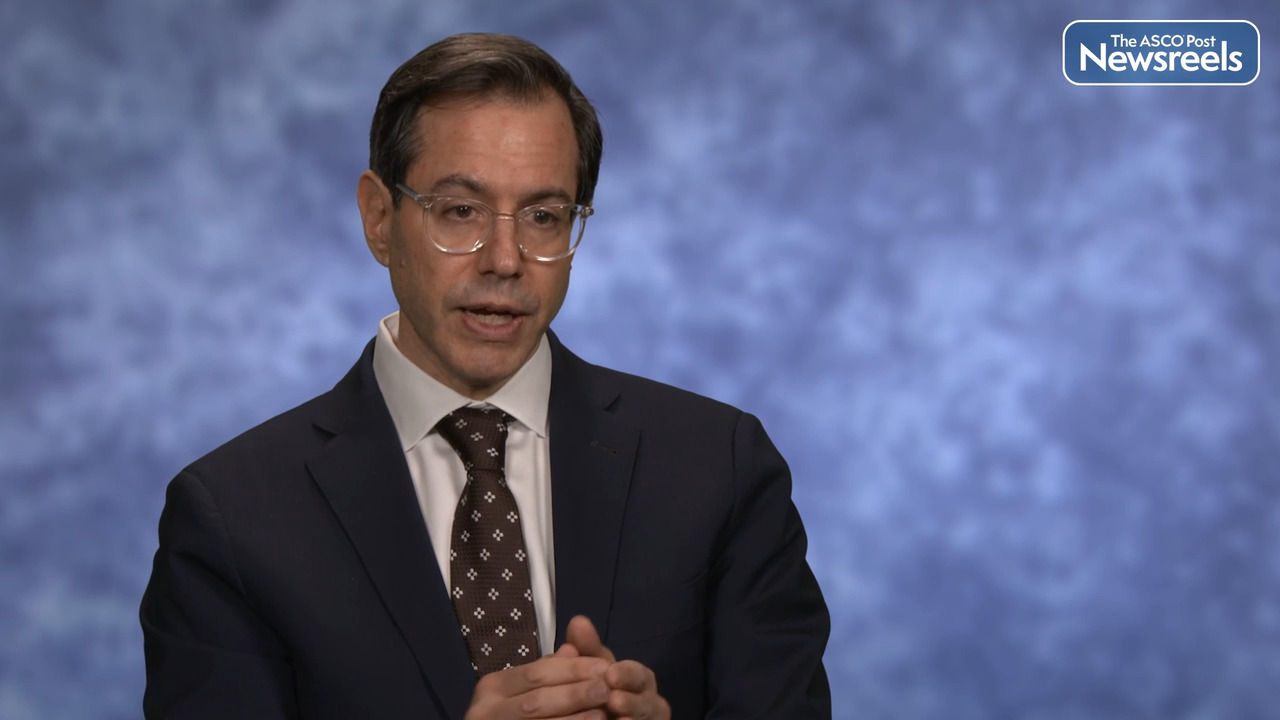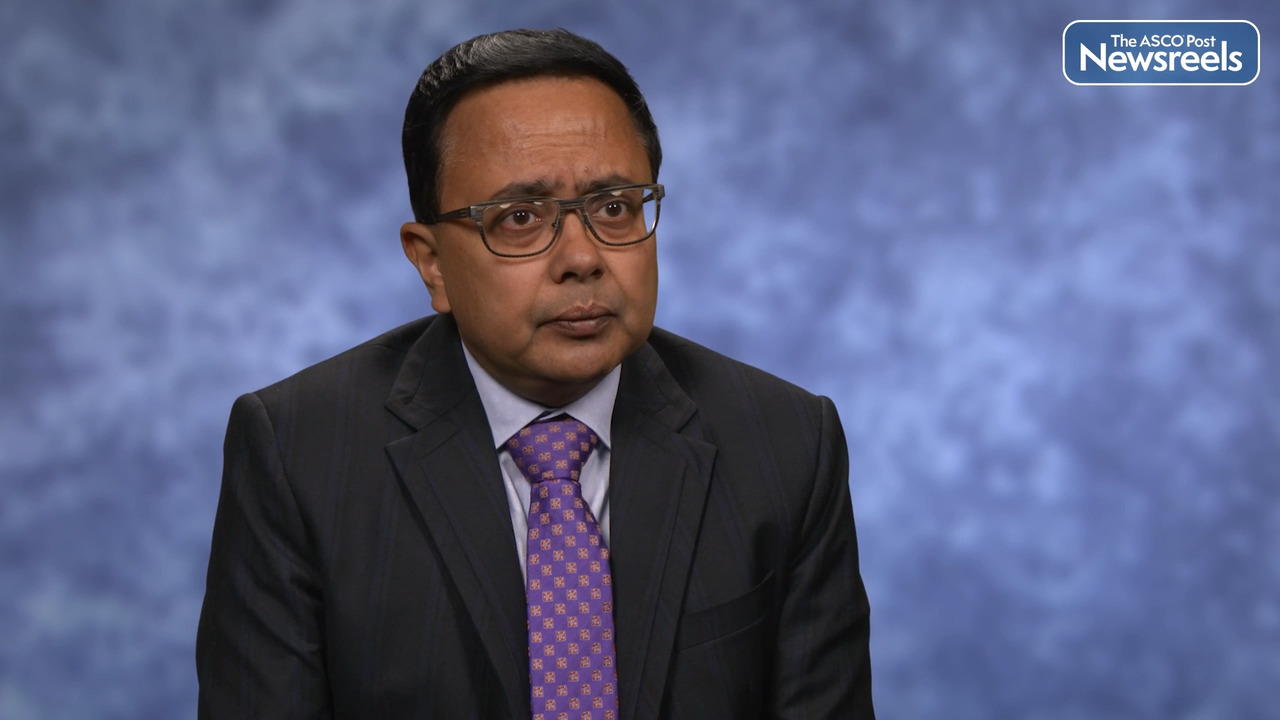Daniel P. Petrylak, MD, on Urothelial Cancer: Phase II Trial Analysis of Sacituzumab Govitecan-hziy in Metastatic Disease
2023 ASCO Genitourinary Cancers Symposium
Daniel P. Petrylak, MD, of the Yale Cancer Center, discusses a primary phase II analysis of the TROPHY-U-01 study, cohort 2, which evaluated sacituzumab govitecan-hziy in platinum-ineligible patients with metastatic urothelial cancer that progressed after prior checkpoint inhibitor therapy. (Abstract 520).
Transcript
Disclaimer: This video transcript has not been proofread or edited and may contain errors.
The treatment of metastatic urothelial carcinoma has evolved over the past 10 years and really has come a long way. Around 2010, if a patient had metastatic bladder cancer, there were two options for platinum eligible patients, those included the MVAC chemotherapy regimen as well as gemcitabine and cisplatinum. Carboplatinum and gemcitabine was considered a standard of care for those patients who were not eligible to receive cisplatin based chemotherapy. Unfortunately, once a patient progressed after any of these regimens, the median survival was about six months. With the use of checkpoint inhibition therapy, as well as the ADCs or the antibody drug conjugates that are showing significant activity in urothelial carcinoma, we've been able to treat patients that have been otherwise refractory to treatment. So we do need more treatments for the treatment of refractory urothelial carcinoma, as well as platinum ineligible urothelial carcinoma. And that was the point of the second group of the TROPHY study.
So we took patients who were ineligible to receive cisplatinum and treated those patients with Sacituzumab govitecan. We found that the response rate was 32% in all patients treated. Additionally, we found that in those patients who did not receive either prior chemotherapy or enfortumab vedotin, that the response rate was more than 50%. The toxicities that we observed with this study included neutropenia as well as diarrhea, and these were consistent with what was reported with the first cohort of the TROPHY study. So in summary, Sacituzumab govitecan has activity in platinum ineligible urothelial carcinoma, and further studies are being performed to look at the combination of Sacituzumab with checkpoint inhibition therapy. Additionally, there are studies that are ongoing with Sacituzumab combined with cisplatin in cisplatinum eligible patients. So this drug can form the core for the development of future therapies for refractory, as well as first line urothelial carcinoma.
The ASCO Post Staff
Daniel P. Petrylak, MD, of the Yale Cancer Center, discusses phase III findings from the KEYNOTE-921 study, which was designed to assess the combination of pembrolizumab and docetaxel in the treatment of patients with metastatic castration-resistant prostate cancer. They had not received chemotherapy, but their disease progressed on the next-generation hormonal agent, or they could not tolerate the agent. (Abstract 19).
The ASCO Post Staff
Michael B. Atkins, MD, of Georgetown Lombardi Comprehensive Cancer Center, discusses treatment-free survival outcomes from the HCRN GU16-260-Cohort A study of patients with previously untreated advanced clear cell renal cell carcinoma who received nivolumab and salvage nivolumab plus ipilimumab. The regimen appears to result in substantial treatment-free survival with few treatment-related adverse events. (Abstract 604).
The ASCO Post Staff
Aristotelis Bamias, MD, of the National and Kapodistrian University of Athens, discusses results from the phase III IMvigor130 study, which suggest that atezolizumab monotherapy continues to show better tolerability vs chemotherapy for patients with untreated locally advanced or metastatic urothelial carcinoma. (Abstract LBA441).
The ASCO Post Staff
Matt D. Galsky, MD, of the Icahn School of Medicine at Mount Sinai and Tisch Cancer Institute, discusses results from CheckMate 274, which investigated nivolumab compared with placebo in patients with bladder or upper urinary tract cancer, following radical surgery to remove invasive disease. (Abstract LBA443).
The ASCO Post Staff
Neeraj Agarwal, MD, of the Huntsman Cancer Institute, University of Utah, discusses phase III results from the TALAPRO-2 study, which suggested an improvement in radiographic progression-free survival with the combination of talazoparib and enzalutamide over standard-of-care enzalutamide alone as first-line treatment in patients with metastatic castration-resistant prostate cancer. The improvement was seen regardless of homologous recombination repair gene mutations. The combination regimen delayed the time to chemotherapy and worsening in global health status and quality of life. (Abstract LBA17).
